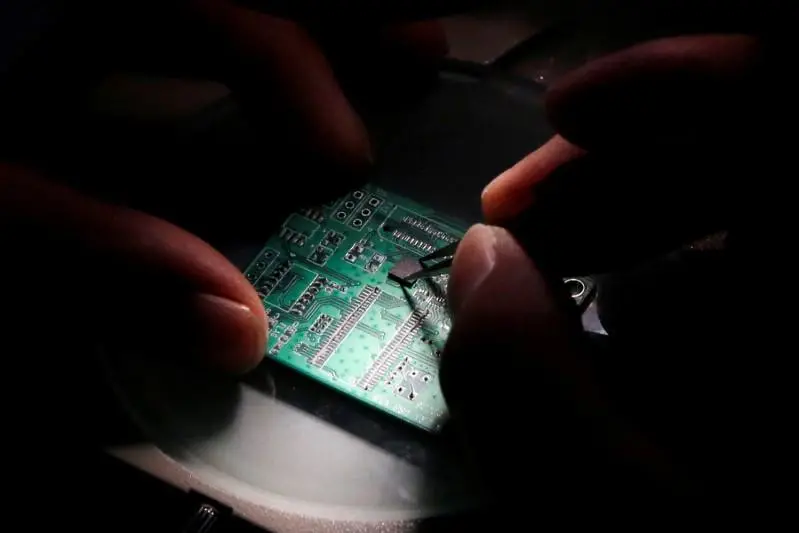PHOTO
BEIJING - China is looking for billions of dollars in funds to propel its domesticambitions in chips to cut a heavy reliance on imports, and has invited overseas investors to help it get there.
The country's industry ministry said on Wednesday that it welcomed foreign enterprises to invest in its top state-backed semiconductor fund, even as tensions simmer over tech transfers betweenChina and the United States.
China is looking to accelerate plans to develop its domestic semiconductor market amid a fierce trade stand-off with the United States and a recent ban on U.S. sales, including of Americanchips, to domestic phone maker ZTE Corp.
China's National Integrated Circuit Investment Fund is now putting together a second fund to support the sector, a Ministry of Industry and Information Technology official said.
"We welcome foreign enterprises to participate," the official said at a press conference in Beijing.
Officials have previously said that the state-backed chip fund is open to investing in foreign semiconductor firms in China, though major projects have so far been local.
The fund, which raised about 140 billion yuan ($22.15 billion) previously, has been a target for U.S. politicians concerned that Chinese firms, flush with state money, could challenge U.S. chipgiants like Qualcomm Corp for whom China is a key market.
The United States Trade Representative directly referenced China's ambitious semiconductor roadmap, which includes national funding, in a trade report that authorized U.S. President Donald Trump to levy up to $100 billion in tariffs against the country.
The fund, commonly referred to as the "Big Fund", has previously backed major projects including a Tsinghua Unigroup memory chip plant worth $24 billion that is currently under construction in the Chinese city of Wuhan.
Beijing says its supportive investment policies are designed to reduce China's reliance on foreign semiconductors, which are one of the country's top imported products by value.
That dependence was highlighted this month after the United States banned American firms from selling components, including semiconductors, to ZTE, in a move that analysts said could be potentially fatal for ZTE's smartphone business.
American companies are estimated to provide 25-30 percent of the components used in ZTE's equipment.
Chinese firms have also had a number of overseas deals to buy foreign chip companies blocked by U.S. regulators in recent years, including a bid by Tsinghua Unigroup to acquire U.S. chipgroup Micron Technology Inc .
(Reporting by Cate Cadell; Editing by Adam Jourdan and Himani Sarkar)
© Reuters News 2018





















